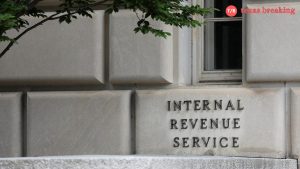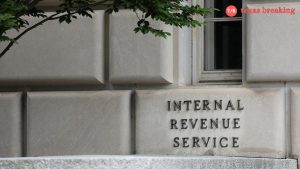During Tuesday’s oral arguments, Justice Amy Coney Barrett joined the liberal justices in questioning Nebraska Solicitor General James Campbell about standing, suggesting that the court’s conservative majority may be divided on the issue of whether six states have the right to contest the Biden administration’s student-loan executive order.
The Biden administration launched a plan in August of last year that would forgive $10,000 of federal student loan debt for individuals or households earning less than $125,000 or $250,000 annually.
Borrowers with low incomes could receive an additional $10,000 in cancellation. The administration utilized the HEROES legislation to explain the strategy, linking the COVID-19 outbreak to provisions in that act that apply under national crises.
Since then, a number of challenges to the scheme have been launched. In each instance, the challengers’ standing, or legal capacity to sue, has been contested. Before the Eighth Circuit and later the Supreme Court became involved, a lower court determined in Biden v. Nebraska that the states hadn’t suffered any harm and couldn’t bring a lawsuit. The justices began their Tuesday hearing with this case.
The Higher Education Loan Authority of the State of Missouri, or MOHELA, an independent corporation that has explicitly stated it is not involved in the state’s challenge, is one of the affiliated loan servicers that the states are suing on behalf of, even though they collectively discussed how their finances would be adversely affected.
One of the biggest lenders and servicers of student loans in the nation is MOHELA.
Insinuating that it might be unable to make the necessary payments to the state treasury, the state of Missouri asserts that it would forfeit service fees on federal loans that are discharged in accordance with President Biden’s directive. MOHELA has established itself as a key player in this case’s ongoing discussion.
Barrett questioned Campbell, who was arguing on behalf of all six states before the Supreme Court on Tuesday, on Missouri’s eligibility to join the lawsuit given that the loan servicer itself did not want to contest the administration.
Even though it was a matter of standing, the query itself was a startling criticism of the practices of the Trump administration, which had released a document before Biden’s inauguration saying that the Department of Education lacked the jurisdiction to forgive student loan debt.
READ ALSO: Up to $5000 Tax Credit Under Oklahoma’s $800 Million Education Proposal – See Who Qualifies
Biden’s Legal Right To Cancel Student Loans
Biden utilized his executive authority to approve the plan even though that never happened. The plan attempted to block Biden’s progress and establish the Republican opposition before he became president.
In this case, there have been more surprises. Conservative Justice Clarence Thomas once reflected on the terrible weight of his undergraduate debt in his 2007 memoir, stating that a fellow student had advised him to file for bankruptcy, according to some commentators.
Others, though, seemed to be fixated on the core question at hand: whether Biden had the legal authority to unilaterally cancel student loans without congressional permission.
The states claimed in their lawsuit that Biden broke federal law when he used his executive authority to circumvent Congress’ authority to implement the policy by relying on a muddled 2003 law known as the Higher Education Relief Opportunities for Students Act, which was initially intended to ease financial burdens on US veterans during the Iraq War.
The plaintiffs contended that the administration’s rationale ignores the act’s basic goals of carrying out significant policy decisions, which they claim ought to be made by Congress under the law. The court’s justices appeared to agree, at least in part.
READ ALSO: Tax Credits in 2023: Which Ones Can You Claim for Maximum Savings?





